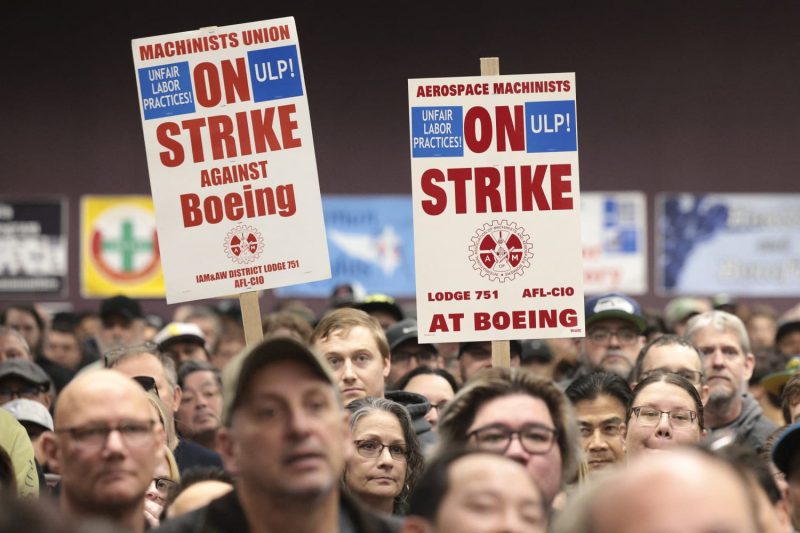In an unexpected turn of events, Boeing machinists have decided to reject a new labor contract proposal put forth by the company, thereby resulting in the extension of a strike that has been causing set-backs in the aviation giant’s production schedule for weeks.
To begin, it is essential to understand the broader context that made the workers tilt towards this rejection. One of the pivotal issues sparking contention is that of wage growth and security of the machinists. The machinists, who play an indispensable part in the production of Boeing’s aircraft, firmly believe that the new contract proposal does not provide adequate guarantees for wage increase and job protection.
This rejection explicit by the workers is a response to circumstances that they find individually unfair and collectively damaging. Key points of disagreement include concerns over wage progression, potential job outsourcing, and inadequate healthcare benefits. This situation has been exacerbated as this isn’t the first time the workforce has had to rally against decisions taken by the company: Back in 2011, the machinists suffered a setback when Boeing decided to move its second 787 Dreamliner assembly line to a non-union factory in South Carolina.
Therefore, the rejection of the labor contract was a push back in search of greater job security and improved wages. The International Association of Machinists and Aerospace Workers (IAM), the labor union representing the machinists, has continually argued that the proposed contract does not meet the employees’ requirements.
This extension of the strike is a significant development for Boeing, especially considering the precarious position the aviation industry is currently grappling with due to the global economic downturn. The strike’s continuation threatens Boeing’s production prowess and its global reputation as the world’s most extensive aerospace company and leading manufacturer of commercial jets. Further, it could result in significant cost overruns and delay deliveries of the aircraft to the customers, thereby affecting the company’s bottom line performance.
In terms of broader market and economic implications, the strike’s prolongation could possibly bog down the US economy by reducing the country’s GDP. Given that the aerospace sector, led by companies such as Boeing, contributes substantially to the country’s export business, a prolonged halt in production could impede the trade balance.
Layers of complexity are added when one considers Boeing’s competition. Notably, the French-based consortium Airbus is poised to capitalize on any potential mishaps within the Boeing company. The ongoing labor dispute and subsequent strike provide Airbus with an opportunity to woo away some of Boeing’s potential customers facing delivery delays.
In summary, the IAM’s decision to reject the labor contract proposal from Boeing and extend the ongoing strike signifies a deep-set dissatisfaction with the company’s approach to wage and job security issues. It highlights the need for Boeing to reassess its strategy and engage in open, game-changing negotiations with the union representatives. The extension of the strike also provides a sobering reminder of the possible ramifications for the overall aerospace sector as well as the wider economy.











